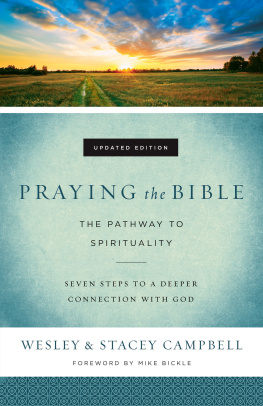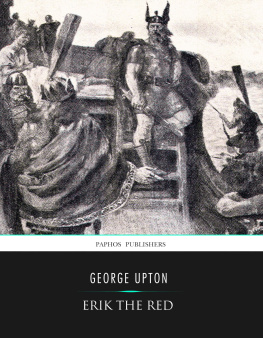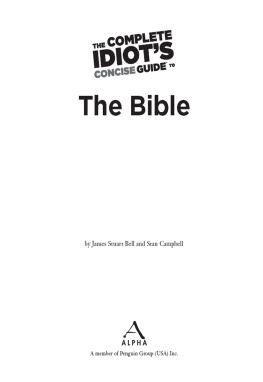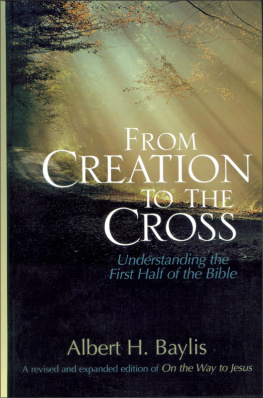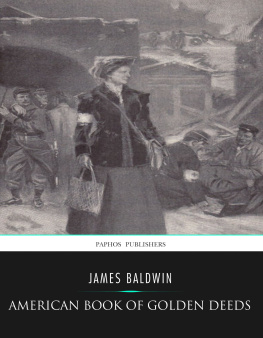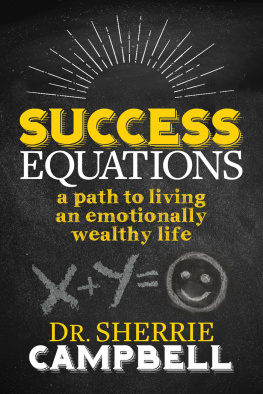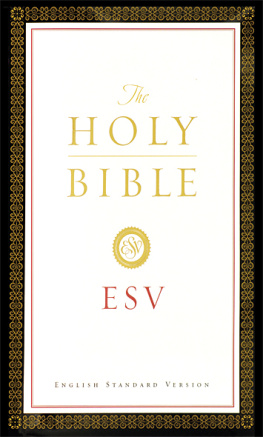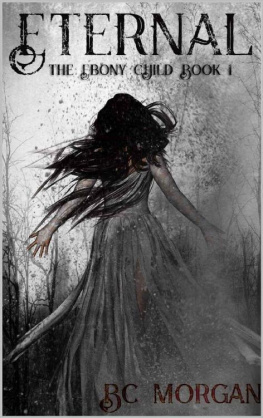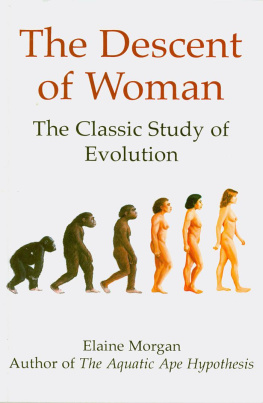G. Campbell Morgan - The Bible and the cross
Here you can read online G. Campbell Morgan - The Bible and the cross full text of the book (entire story) in english for free. Download pdf and epub, get meaning, cover and reviews about this ebook. year: 2018, publisher: Charles River Editors, genre: Religion. Description of the work, (preface) as well as reviews are available. Best literature library LitArk.com created for fans of good reading and offers a wide selection of genres:
Romance novel
Science fiction
Adventure
Detective
Science
History
Home and family
Prose
Art
Politics
Computer
Non-fiction
Religion
Business
Children
Humor
Choose a favorite category and find really read worthwhile books. Enjoy immersion in the world of imagination, feel the emotions of the characters or learn something new for yourself, make an fascinating discovery.
- Book:The Bible and the cross
- Author:
- Publisher:Charles River Editors
- Genre:
- Year:2018
- Rating:5 / 5
- Favourites:Add to favourites
- Your mark:
- 100
- 1
- 2
- 3
- 4
- 5
The Bible and the cross: summary, description and annotation
We offer to read an annotation, description, summary or preface (depends on what the author of the book "The Bible and the cross" wrote himself). If you haven't found the necessary information about the book — write in the comments, we will try to find it.
Paphos Publishers offers a wide catalog of rare classic titles, published for a new generation.
The Bible and the Cross is a classic sermon by G. Campbell Morgan.
The Bible and the cross — read online for free the complete book (whole text) full work
Below is the text of the book, divided by pages. System saving the place of the last page read, allows you to conveniently read the book "The Bible and the cross" online for free, without having to search again every time where you left off. Put a bookmark, and you can go to the page where you finished reading at any time.
Font size:
Interval:
Bookmark:
By
G. Campbell Morgan
THE PRESENT SERIES OF STUDIES assumes that the Christian religion is the religion of the Lord Jesus Christ, and that the Bible is its authoritative exposition. Of the Christian system, the Cross of Christ is the central truth. It is at once a profound mystery, and a most glorious revelation. As to its deepest and hidden method it is a mystery; in its unveiling of the heart of God and in the declaration of the possibility of forgiveness of sins, it is a revelation.
Our purpose is to gather about the cross in order that we may consider it in the light of Bible teaching. I shall endeavor resolutely to avoid making any appeal to speculations or philosophies which are not founded on acceptance of the authority of Scripture.
The two passages which indicate our starting point contain much teaching with which I do not propose now to deal. I refer to them because they set forth certain truths of supreme importance to our argument. The quotations are taken respectively from the first and second discourses of Peter, delivered in the power of the outpoured Spirit. In the last days of our Lords ministry, during which He foretold His Cross with great distinctness, these men quite honestly believed that the Cross would inevitably mean defeat of His purpose and disaster to His enterprise. Immediately after the reception of the Spirit they referred to the Cross in such language as to make it plain that there had come to them an entirely new conception of its meaning.
In each of these passages, Peter emphasized two facts: first, that of the sinlessness of Jesus and secondly, that of the sin of His murder.
When, in the second passage, the Apostle charged those to whom he spoke with having slain the Holy and the Righteous One, his words were carefully chosen. The word holy describes inward purity, which is the perfection of character. The word righteous describes active rectitude, which is perfection of conduct. Thus Peter affirmed that Jesus whom they slew was both holy and righteous that is true in conduct.
He moreover, in each case charged upon the men to whom he was speaking that their putting to death of a sinless Man was an act of sin. We are thus confronted with a problem which we are compelled to recognize and of which we must attempt to find the solution. That solution is not found in these passages, and we shall not reach it in this study. The matter of first importance is that we should recognize the problem.
Let me state that problem briefly. In the midst of that universe which the Bible declares to be under the government of God, the one perfect Man in all human history is put to death by the hands of sinful men. Men of impure character slay the one Man of purity of character.
Let us attempt to see this more clearly. This we shall do if we consider the teaching of the Bible concerning death and Jesus; for such consideration must inevitably reveal the fact that the death of Jesus was unnatural.
I.
What does the Bible teach concerning death? In answer to that inquiry I shall first state the case in general propositions and then make one or two references to particular passages of Scripture. The Bible teaches that death in the case of man is the direct outcome of sin, and the penalty thereof. It declares, moreover, that death essentially consists in the separation of the spirit of man from the Spirit of life, which is the Spirit of God. It further teaches that this separation of the spirit of man from the Spirit of God involves ultimately the separation of mans spirit from that mans body. It finally teaches that the separation between the spirit of man and the Spirit of God may be an age-binding separation. This moreover, is acknowledged true as the result of investigation, as well as in the light of Scripture teaching. I do not think it is necessary for me to argue that at length, yet it is necessary to state it if we are to understand the meaning of death in the case of man. Man is the offspring of God, made in His image and in His likeness. That declaration has no reference to anything that is merely physical or animal in mans life. Human personality today has a physical basis, an animal tenement in which man dwells; but according to the uniform teaching of Scripture, man is essentially spirit, as God is spirit.
According to the Genesis story, the warning given to the first man was, In the day that thou eatest thereof thou shall surely die; and in the day of their disobedience our first parents died, in that way they were separated by that act from God. After they had sinned God said, Dust thou art, and unto dust shall thou return. This word was not uttered until sin had been committed. That was the sentence of death. The spirit of man in the moment of its rebellion lost its connection with the Spirit of God and the separation between his spirit and his body commenced.
II.
In the light of this consideration we now turn to our second inquiry as to the teaching of Scripture concerning Jesus. I am careful for the moment not to speak of Him as Christ or Lord, but only by the name by which He was known in Nazareth, the name which marks Him out as a Man among men. Concerning Him the Scripture teaches that He was absolutely sinless, and that in that respect He was an exception in human history. He made this claim for Himself in many ways. In an atmosphere surcharged with criticism he declared, I do always the things that are pleasing to Him. The other quotation occurs in the same surroundings. He challenged the men who were criticizing his claims, as he asked them, Which of you convince me of sin? and to this challenge their only answer was silence.
Turning from His own testimony to that of others recorded in the New Testament, we find that at His baptism, God said, This is my Beloved Son in whom I am well pleased. On the Mount of Transfiguration, to the astonished disciples the voice out of heaven made the same declaration. And again, when Jesus approaching the hour of his passion, prayed, Father, glorify thy name, the answering voice declared, I have both glorified it, and will glorify it again. Thus the testimony of God, who is the sworn foe of all evil, the one who can by no means clear the guilty, affirmed the sinlessness of Jesus.
The testimony of his own disciples was equally clear. Peter called him the Holy and Righteous One; John wrote of Him, In Him is no sin; and Paul declared of Him that He knew no sin.
The testimony of evil men is the same. The time-serving and scheming Pilate, who fain would have saved both his conscience and his position, thrice declared, I find no crime in Him. That was the language of a judge. Charges had been brought against Jesus. Pilate investigated them and this was his verdict. Judas, in the terrible hour when the consciousness of the guilt of his treachery broke upon his soul, hurried into the presence of the chief priests, and flinging down the ill-gotten silver, cried in remorse, I have sinned in that I have betrayed innocent blood.
Thus upon his own testimony, upon the testimony of God, upon the testimony of His disciples, upon the testimony of impartial witnesses, upon the testimony of evil men, upon the testimony of a demon, we declare that Jesus of Nazareth was sinless.
To the accuracy of that testimony the centuries bear witness. Men who deny all we believe concerning the deeper mystery of the Person of Jesus yet admit the sinlessness of His human life. Through nineteen centuries no reputable critic of Jesus has ever questioned this claim.
All this finally leads to the conclusion that the death of Jesus was unnatural that is to say, it was out of the true order of human life according to the economy of God. Death is the outcome of sin. Jesus was sinless. Nevertheless He died. I have taken so long to state the problem because it is only as we are arrested by the uniqueness of his death, by the strangeness of it, by the baffling perplexity of its problem, that we are ever likely to discover its true meaning.
Font size:
Interval:
Bookmark:
Similar books «The Bible and the cross»
Look at similar books to The Bible and the cross. We have selected literature similar in name and meaning in the hope of providing readers with more options to find new, interesting, not yet read works.
Discussion, reviews of the book The Bible and the cross and just readers' own opinions. Leave your comments, write what you think about the work, its meaning or the main characters. Specify what exactly you liked and what you didn't like, and why you think so.




